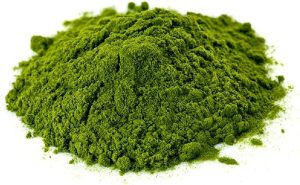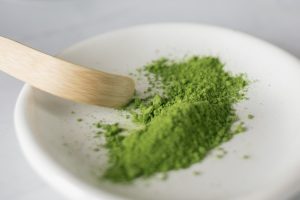
- Overview of Potassium
- Brief History of Potassium
- Functions of Potassium
- Recommended Daily Intake (RDI), Recommended Dietary Allowance (RDA), Adequate Intake (AI), or Reference Nutrient Intake (RNI) for Potassium
- Deficiency of Potassium
- Food Sources of Potassium and Where to Get It From
- Potassium and Its Interaction with Other Medications
- Websites and Articles to Delve into the Benefits of Potassium
- Disclaimer
Overview of Potassium
Potassium is a vital mineral and electrolyte crucial for various physiological functions within the human body. As an essential component for maintaining fluid balance, potassium plays a pivotal role in regulating blood pressure, nerve impulses, and muscle contractions, including the heart. Adequate potassium intake supports cardiovascular health, helps prevent muscle cramps, and contributes to proper kidney function.
Dietary sources rich in potassium include fruits (such as bananas, oranges, and strawberries), vegetables (like spinach, potatoes, and tomatoes), and legumes.
Maintaining an appropriate balance of potassium is essential for overall health, and deficiencies or excesses can lead to adverse health effects, emphasizing the importance of a well-balanced diet.
Brief History of Potassium
The history of potassium dates back to the late 18th century, and its discovery is closely linked to advancements in the understanding of chemistry. Here’s a brief overview:
- Isolation by Sir Humphry Davy (1807):
- Sir Humphry Davy, an English chemist, first isolated potassium in 1807. He used a process of electrolysis to separate potassium from molten potash (potassium carbonate). This marked a significant achievement in the isolation of alkali metals.
- Etymology and Symbol:
- The name “potassium” is derived from “potash,” the substance from which it was initially isolated. The symbol “K” comes from the Latin word “kalium,” another term for potash.
- Early Use and Recognition:
- Potash had been used for various purposes, including the production of soap and glass, long before the isolation of potassium. However, it was only with Davy’s work that the specific element potassium was identified.
- Industrial Applications:
- Potassium compounds, particularly potassium carbonate and potassium hydroxide, have been used historically in the soap and glass industries. They also play a role in fertilizers, contributing essential nutrients for plant growth.
- Biological Significance:
- Recognizing the importance of potassium in biological systems came later. The role of potassium as an essential electrolyte in cellular function, nerve transmission, and muscle contraction became evident over time.
- Nutritional Importance:
- Understanding the nutritional significance of potassium in human health developed in the 20th century. Research highlighted its role in maintaining proper heart function, blood pressure regulation, and overall electrolyte balance.
- Dietary Recommendations:
- Today, potassium is recognized as a vital nutrient, and dietary guidelines emphasize the importance of adequate potassium intake for maintaining health. Fruits, vegetables, and other whole foods are recommended sources of dietary potassium.
| Event | Description |
|---|---|
| Isolation by Sir Humphry Davy (1807): | Sir Humphry Davy, an English chemist, first isolated potassium in 1807. He employed electrolysis to separate potassium from molten potash (potassium carbonate), marking a significant achievement in alkali metal isolation. |
| Etymology and Symbol: | The name “potassium” is derived from “potash,” the substance from which it was initially isolated. The symbol “K” comes from the Latin word “kalium,” another term for potash. |
| Early Use and Recognition: | Potash had been utilized for various purposes, such as soap and glass production, before the isolation of potassium. Sir Humphry Davy’s work identified potassium as a specific element, distinguishing it from potash. |
| Industrial Applications: | Potassium compounds, especially potassium carbonate and potassium hydroxide, historically played roles in the soap and glass industries. They are also vital in fertilizers, contributing essential nutrients for plant growth. |
| Biological Significance: | Understanding the biological significance of potassium in cellular function, nerve transmission, and muscle contraction developed over time. Potassium was recognized as an essential electrolyte in biological systems. |
| Nutritional Importance: | The nutritional importance of potassium in human health became evident in the 20th century. Research highlighted its role in maintaining proper heart function, blood pressure regulation, and overall electrolyte balance. |
| Dietary Recommendations: | Potassium is now recognized as a vital nutrient, and dietary guidelines emphasize the importance of adequate potassium intake for maintaining health. Fruits, vegetables, and other whole foods are recommended sources of dietary potassium. |
The history of potassium reflects a journey from its isolation as a reactive metal to its recognition as a crucial element for both industrial and biological processes. Ongoing research continues to deepen our understanding of its various roles in chemistry, biology, and nutrition.
Functions of Potassium
Potassium is an essential mineral that plays a crucial role in various physiological functions within the human body. Here are key functions of potassium:
- Electrolyte Balance:
- Potassium is a major intracellular electrolyte, maintaining the balance of fluids inside cells. This is essential for cell structure, function, and overall cellular health.
- Nerve Signal Transmission:
- Potassium is vital for the transmission of nerve impulses. It helps generate action potentials, enabling communication between nerve cells and facilitating muscle contractions.
- Muscle Contraction:
- Potassium is involved in regulating muscle contractions, including the contraction and relaxation of the heart muscle. It works in concert with sodium to maintain proper muscle function.
- Heart Function:
- Potassium is crucial for maintaining the electrical activity of the heart. It helps regulate the heart’s rhythm and contributes to overall cardiovascular health.
- Blood Pressure Regulation:
- Adequate potassium intake is associated with lower blood pressure. Potassium helps counterbalance the effects of sodium, promoting healthy blood vessel function and reducing the risk of hypertension.
- Fluid Balance:
- Potassium, along with sodium, helps regulate water balance in and around cells, contributing to overall fluid balance in the body.
- Acid-Base Balance:
- Potassium plays a role in maintaining the body’s acid-base balance. It helps buffer excess acids and bases, supporting stable pH levels in bodily fluids.
- Kidney Function:
- The kidneys play a crucial role in maintaining potassium balance by adjusting its excretion. Adequate potassium levels support proper kidney function.
- Energy Metabolism:
- Potassium is involved in the synthesis of adenosine triphosphate (ATP), the primary energy currency of cells. It contributes to energy metabolism and the conversion of nutrients into usable energy.
- Bone Health:
- While calcium and phosphorus are more directly associated with bone structure, potassium also plays a role in overall bone health. It helps maintain an alkaline environment that supports bone mineralization.
Ensuring an adequate intake of potassium through a balanced diet, rich in fruits, vegetables, and whole foods, is crucial for supporting these physiological functions. Deficiencies or imbalances in potassium can lead to disruptions in nerve and muscle function, cardiovascular issues, and other health problems.
Recommended Daily Intake (RDI), Recommended Dietary Allowance (RDA), Adequate Intake (AI), or Reference Nutrient Intake (RNI) for Potassium
The dietary recommendations for potassium are typically expressed as Adequate Intake (AI) rather than Recommended Dietary Allowance (RDA). Adequate Intake represents a level assumed to ensure nutritional adequacy in the absence of specific data to establish an RDA. Here are the AI values for potassium:
- Adequate Intake (AI) for Potassium: The Adequate Intake for potassium varies by age, sex, and life stage. As a general guideline, the AI for adults is:
- 2,300 milligrams (mg) per day for adult men and women.
It’s important to note that individual potassium needs may vary based on factors such as age, gender, physical activity, and overall health. Additionally, some health organizations may express potassium recommendations differently.
For the most current and specific dietary recommendations, it’s advisable to consult authoritative sources such as health organizations, dietary guidelines, or healthcare professionals. Nutrient recommendations can be subject to updates or revisions based on ongoing research and scientific advancements.
Deficiency of Potassium
Potassium deficiency, known as hypokalemia, can occur when the body loses more potassium than it takes in or when there is an inadequate dietary intake. Here are some potential causes and symptoms of potassium deficiency:
Causes of Potassium Deficiency:
- Inadequate Dietary Intake:
- A diet low in potassium-rich foods, such as fruits, vegetables, and whole grains, can contribute to deficiency.
- Excessive Losses:
- Conditions like persistent vomiting, diarrhea, excessive sweating, or the use of certain medications (diuretics, laxatives) can lead to increased potassium loss.
- Certain Medical Conditions:
- Conditions such as kidney disorders, gastrointestinal disorders, and certain endocrine disorders may interfere with potassium balance.
- Magnesium Deficiency:
- Magnesium is necessary for potassium uptake by cells. A deficiency in magnesium can indirectly contribute to potassium deficiency.
- Alcoholism:
- Chronic alcohol use can lead to poor dietary intake and increased urinary potassium excretion.
Symptoms of Potassium Deficiency:
- Muscle Weakness and Cramps:
- Potassium is essential for proper muscle function. Deficiency can lead to weakness, cramps, and muscle aches.
- Fatigue:
- Generalized weakness and fatigue may occur.
- Abnormal Heart Rhythms (Arrhythmias):
- Potassium is crucial for maintaining the electrical activity of the heart. Severe deficiency can lead to irregular heart rhythms.
- Constipation:
- Potassium plays a role in maintaining bowel function. Deficiency may contribute to constipation.
- Numbness and Tingling:
- Potassium is involved in nerve function. Deficiency may lead to sensations of numbness or tingling.
- Increased Blood Pressure:
- Potassium deficiency can affect blood vessel function, potentially contributing to elevated blood pressure.
- Kidney Stones:
- Insufficient potassium may lead to an imbalance of minerals in the urine, increasing the risk of kidney stones.
- Glucose Intolerance:
- Some studies suggest a link between low potassium levels and impaired glucose metabolism.
Addressing the underlying cause of potassium deficiency is essential for treatment. This may involve dietary changes, potassium supplements, or addressing any underlying medical conditions contributing to the deficiency. It’s crucial to seek medical attention if symptoms of potassium deficiency are suspected, as severe cases can have serious health implications, especially on heart function.
Food Sources of Potassium and Where to Get It From
Potassium is abundant in a variety of foods, especially fruits, vegetables, and certain other whole foods. Here are some excellent food sources of potassium and ideas on where to get them:
- Bananas:
- Eat them as a snack, add slices to cereal or yogurt, or use them in smoothies.
- Oranges and Orange Juice:
- Enjoy oranges as a snack or drink fresh orange juice. Be mindful of added sugars in commercial juices.
- Potatoes (with Skin):
- Bake or roast potatoes with the skin on. Mashed potatoes and sweet potatoes are also good options.
- Tomatoes and Tomato Products:
- Add fresh tomatoes to salads, sandwiches, or pasta dishes. Use tomato sauce in cooking.
- Spinach:
- Add fresh spinach to salads or sandwiches, or include it in cooked dishes like omelets and stir-fries.
- Avocado:
- Enjoy avocados in salads, sandwiches, or as a topping for toast. Guacamole is another tasty option.
- Sweet Potatoes:
- Bake, roast, or mash sweet potatoes. They can be used in both savory and sweet dishes.
- Melons (e.g., Cantaloupe, Honeydew):
- Eat melon slices as a refreshing snack or add them to fruit salads.
- Beans (e.g., Kidney Beans, Black Beans):
- Include beans in soups, stews, salads, or as a side dish. They are versatile and can be used in various recipes.
- Yogurt:
- Enjoy yogurt as a snack, add it to smoothies, or include it in breakfast bowls.
- Fish (e.g., Salmon, Tuna):
- Grill or bake fish for a nutritious main course. Canned fish is also a convenient option.
- Mushrooms:
- Add mushrooms to omelets, stir-fries, or use them as a pizza topping.
- Nuts (e.g., Pistachios, Almonds):
- Snack on a handful of nuts, or add them to salads, yogurt, or oatmeal.
- Broccoli:
- Steam or stir-fry broccoli as a side dish or add it to casseroles.
- Dried Fruits (e.g., Apricots, Raisins):
- Include dried fruits in trail mixes, cereals, or enjoy them as a snack.
Incorporating a variety of these potassium-rich foods into your diet can help you maintain healthy potassium levels. A balanced and diverse diet that includes a mix of fruits, vegetables, whole grains, and lean proteins provides the nutrients your body needs, including potassium.
Potassium and Its Interaction with Other Medications
It seems there’s a slight confusion in your question. Potassium is a mineral, not a vitamin. Vitamins and minerals are distinct types of nutrients, each serving specific functions in the body. Potassium is a crucial mineral involved in various physiological processes, as discussed earlier.
When it comes to interactions with medications, potassium supplements or high-potassium foods can potentially interact with certain medications. It’s essential to be cautious, especially if you are taking medications that affect potassium levels. Here are some considerations:
- Potassium-Sparing Diuretics:
- Medications like spironolactone and amiloride are potassium-sparing diuretics. Taking additional potassium supplements alongside these medications may lead to high levels of potassium in the blood (hyperkalemia).
- ACE Inhibitors and ARBs:
- Angiotensin-converting enzyme (ACE) inhibitors and angiotensin II receptor blockers (ARBs) may increase potassium levels. Adding extra potassium, either through supplements or high-potassium foods, can further elevate potassium levels.
- Nonsteroidal Anti-Inflammatory Drugs (NSAIDs):
- Some NSAIDs, especially certain types of indomethacin, can affect kidney function and potassium balance. This interaction may be more relevant for individuals with compromised kidney function.
- Potassium Supplements:
- If you are prescribed potassium supplements, it’s crucial to take them as directed by your healthcare provider. Excessive potassium intake, especially through supplements, can lead to hyperkalemia, which can have serious health implications.
- Beta-Blockers:
- Some beta-blockers may affect potassium levels, though the impact can vary. Monitoring potassium levels may be necessary, especially if you have cardiovascular conditions.
Always inform your healthcare provider about all medications, including over-the-counter supplements, that you are taking. They can provide personalized advice based on your specific health condition and medication regimen. If you have concerns about potential interactions, your healthcare provider or pharmacist can offer guidance to ensure optimal medication effectiveness and nutrient balance.
Websites and Articles to Delve into the Benefits of Potassium
Certainly! Here’s a brief overview of potassium along with information from the provided websites:
- Harvard T.H. Chan School of Public Health – Potassium:
- Harvard T.H. Chan School of Public Health – Potassium provides information on the natural sources of potassium and its role in maintaining normal blood pressure.
- Wikipedia – Potassium:
- Wikipedia – Potassium offers an overview of potassium, including its properties, occurrences, and applications.
- MedlinePlus – Potassium:
- MedlinePlus – Potassium provides detailed information on potassium, its functions in the body, dietary sources, and potential health implications.
- Healthline – Potassium:
- Healthline – Potassium explores the benefits of potassium, its role in the body, and potential risks associated with deficiency or excess.
- WebMD – Supplement Guide Potassium:
- WebMD – Supplement Guide Potassium offers a guide to potassium supplements, including information on uses, dosage, and potential side effects.
- WebMD – Foods Rich in Potassium:
- WebMD – Foods Rich in Potassium provides a list of foods that are rich in potassium, helping individuals incorporate this essential nutrient into their diet.
- NIH Office of Dietary Supplements – Potassium:
- NIH Office of Dietary Supplements – Potassium provides a health professional’s fact sheet on potassium, covering its functions, recommended intake, and dietary sources.
- Healthdirect – Potassium:
- Healthdirect – Potassium offers information on potassium, its importance, dietary sources, and potential health benefits.
- Medical News Today – Potassium:
- Medical News Today – Potassium explores the health benefits of potassium, its role in various bodily functions, and recommended daily intake.
- Encyclopedia Britannica – Potassium:
- Encyclopedia Britannica – Potassium provides an in-depth overview of potassium, covering its chemical properties, occurrence, and applications.
- Linus Pauling Institute – Potassium:
- Linus Pauling Institute – Potassium offers information on potassium as a mineral, its dietary sources, and its importance for health.
- National Kidney Foundation – About Potassium:
- National Kidney Foundation – About Potassium provides information on the role of potassium in kidney health and its impact on various bodily functions.
- American Heart Association – How Potassium Can Help Control High Blood Pressure:
- American Heart Association – How Potassium Can Help Control High Blood Pressure explains how potassium can contribute to the management of high blood pressure.
- Cleveland Clinic – Hyperkalemia (High Blood Potassium):
- Cleveland Clinic – Hyperkalemia (High Blood Potassium) provides information on high blood potassium levels and their potential consequences.
- EatRight.org – What is Potassium:
- EatRight.org – What is Potassium explains what potassium is and its significance as an essential nutrient.
- ScienceDirect – Potassium:
- ScienceDirect – Potassium provides scientific insights into potassium, covering its chemical properties and biological roles.
- CDC – Potassium:
- CDC – Potassium offers information on potassium and its
Disclaimer
The information is solely provided for educational purposes. It is not intended to diagnose, treat, cure, or prevent any disease. Seek the advice of your physician or qualified healthcare provider with any questions you may have regarding a medical condition at all times. Never disregard professional medical advice because of something you have read or learned from this article.






